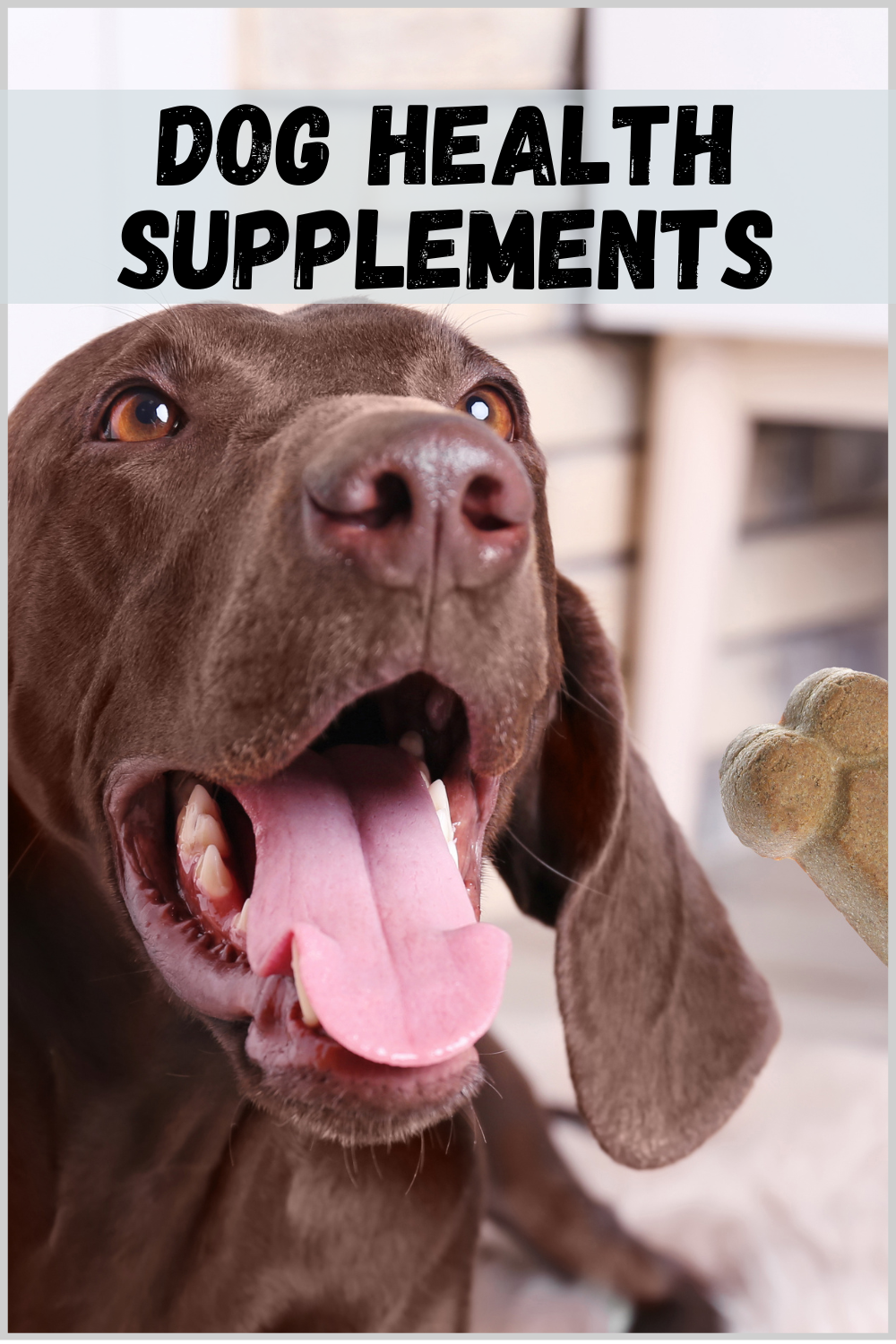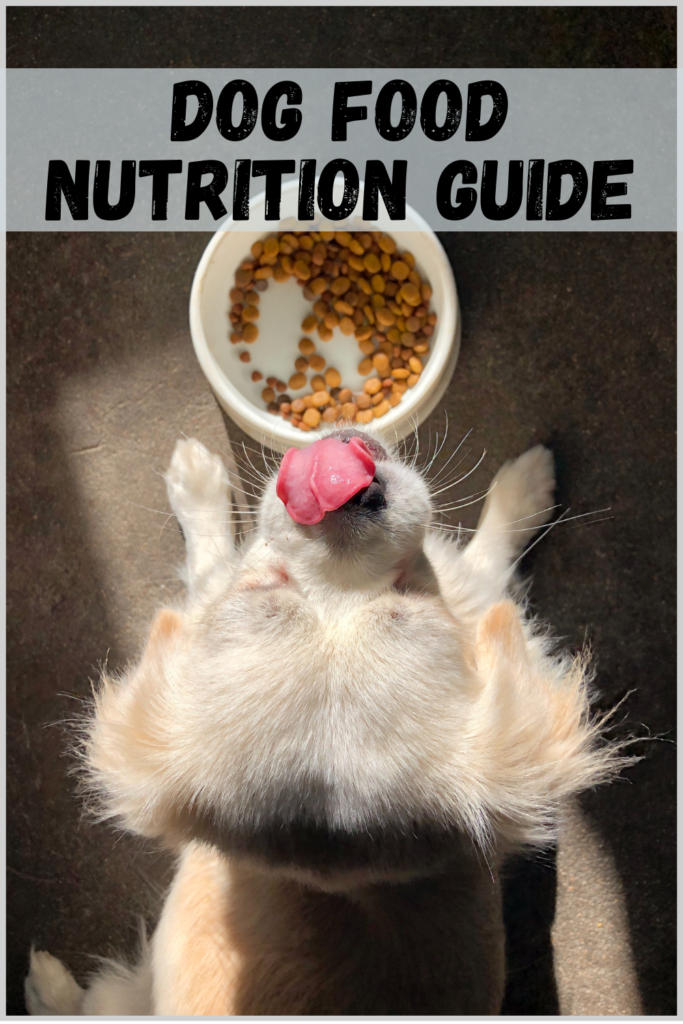
7 Questions to Ask Before Getting a Dog Health Supplement
Confused about what dog health supplement to feed to your furry friend? Worried about all the options and whether to choose from a general multivitamin versus specific supplements? This article will go over 7 questions to ask yourself before you start, to help guide you throughout the process. From researching to buying and giving your furry friend the right nutrients for optimal health and wellness, we’re here to help!
As always, we strive to bring you up-to-date, research-based information on dog diet, health, and nutrition to give your best friend the long life they deserve.
This article will go over 7 crucial questions to ask yourself before starting your dog on a dog health supplement.

Does my dog NEED supplements?
No… on most occasions. If you’ve read anything about dog nutrition, you’ve most likely heard about the Association of American Feed Control Officials (AAFCO), an organization that outlines guidelines for all commercial-grade dog food on the market. That means almost all dog food brands on the market follow their guidelines, in outlining the minimum amounts of nutrients your dog needs to live. Therefore, if you’re dog is on a commercial-grade dog food brand, they have all of the minimum nutrients to live. Period.
However, this changes on a few occasions. For example, if you give them a smaller brand of dog food, don’t want to give them a commercial grade kibble, substitute with a homemade dog food diet, and/or have specific concerns you would like to address.
We’ll go over some more detailed questions to consider before starting on a supplement. If you answer no to the majority of the questions and concerns, know that they do NOT need supplements, as a healthy doggie! Note that if your veterinarian recommends any supplements for specific health issues, listen to what they recommend.
What dog food are they eating now? Is it “complete and balanced”?
Does the nutritional label on the food they are eating now say that it is “complete and balanced”? If so, that specific dog food is intended to be the only thing they need in their diet, regulated by the guidelines set forth by the AAFCO.
Smaller dog food brands and homemade dog food recipes are usually not considered complete and balanced. Especially with homemade dog food, there is a large percentage of nutritional imbalances. In a large study done on 106 dogs and cats, levels of certain vitamins like Calcium were at an average of 19.7% compared to the recommended value. It is almost quite alarming to think that making them a homemade diet might be doing them more harm than good. This puts them at risk for nutrient deficiencies and therefore, might need to include supplementation.

Are there certain health concerns that I am looking to address?
Supplementation is not only important for diets that are not complete and balanced, they can be extremely useful when it comes to addressing specific health concerns and issues. From osteoarthritis down to their coat health, your health concern does not have to be a serious life-threatening one, for you to want to take preventative measures!
Some common health concerns, that are not life-threatening, are if your dog is extremely energetic and works every day, or if you want them to have a shiny, smooth coat. Moreover, if you have a big dog and want to make sure their joints are healthy, these are all things that can be addressed with a dog health supplement!
Do you have time to supplement with whole foods?
Just like us humans, supplementation with powders and chews is not the only way to get the nutrients they need. They are, in fact, not considered the most efficient way of absorbing nutrients. Many of these concerns can also be addressed by adding whole foods to their diet. For example, green-lipped mussels are a great whole food that does the same thing as a joint supplement. Sardines are a great source of omega-3 fatty acids that act as both an anti-inflammatory agent for their joints and also ensure a smooth-looking coat.
However, trying to supplement with whole foods can be extremely time-consuming. Have you ever tried to look for green-lipped mussels at your local grocery store? Canned sardines, soaked in water, also isn’t the easiest thing to find.
If you don’t have the time to buy these whole foods, supplementation might be your next best thing. Anything is better than nothing, ALWAYS!
Do you have the money to continuously buy supplements?
Maybe you like a specific dog food diet or want to target a specific health concern, however, one thing to remember is that good quality supplements are not cheap. Continuously buying supplements is not cheap, and needs to be considered before committing to an additional supplement in their food.
Remember that what you give to your dog as a part of their nutrition and diet should be the best that you can offer. If it’s not on the table right now, it doesn’t mean it’s not on the table in the future or that you’re doing something wrong!

What are the different types of supplements?
There are so many different types of supplements to give to your dog. Some of the few very common ones are a joint supplement, omega-3 fatty acid supplement, fiber, and probiotic supplements. There is also a class of multivitamins that you can buy for your pup.
Depending on your dog’s age, breed, and size, there are supplements for every need. Whether that be with anal gland secretion as they get older, or an energy and recovery supplement for high-energy, working dogs.
However, more supplements do not always mean better. They should only be considered as an additional resource for addressing the specific health issues, concerns, and needs of your furry friend!
Does your veterinarian recommend any specific supplements?
Last, but not least, what does your veterinarian think? At checkups and appointments, do they recommend any specific dog health supplement? Veterinarians are your friends, and in fact, will have answers to most of the questions you may have. If they recommend you start your pup on a probiotic, then that’s what we recommend as well!

Conclusion
Dog health supplements can be confusing and challenging to determine what supplement is best for your dog. If you answered yes to most of these questions, figure out what specific supplements your dog needs, add them to their diet, and monitor for any drastic changes in behavior, good or bad. If you answered no, supplements may not be needed in your dog’s overall health and wellness routine. This might change in the future, but hopefully, we are able to help lead you in the right direction now. Cheers to another day with your best friend and give them an extra belly rub for me. <3



